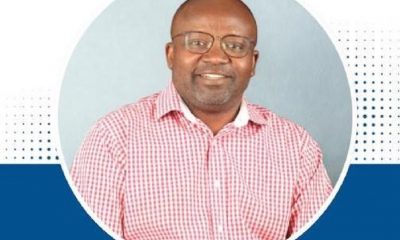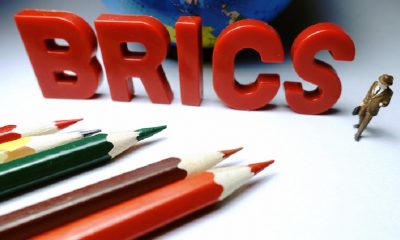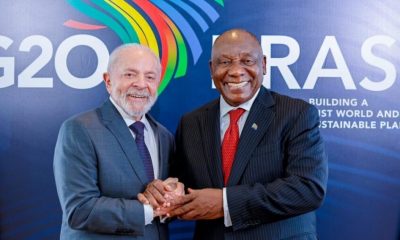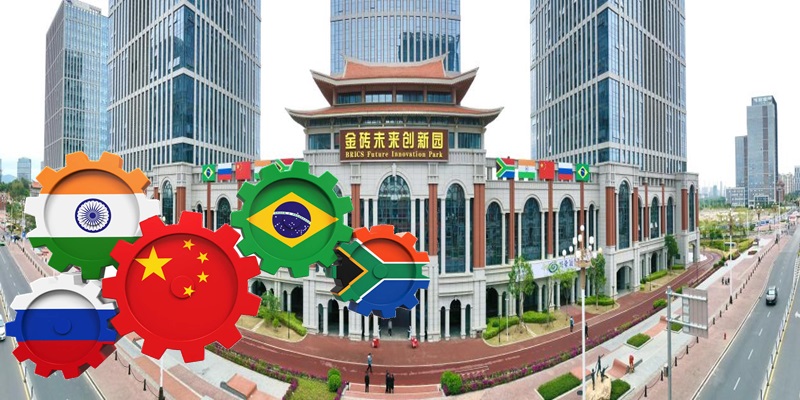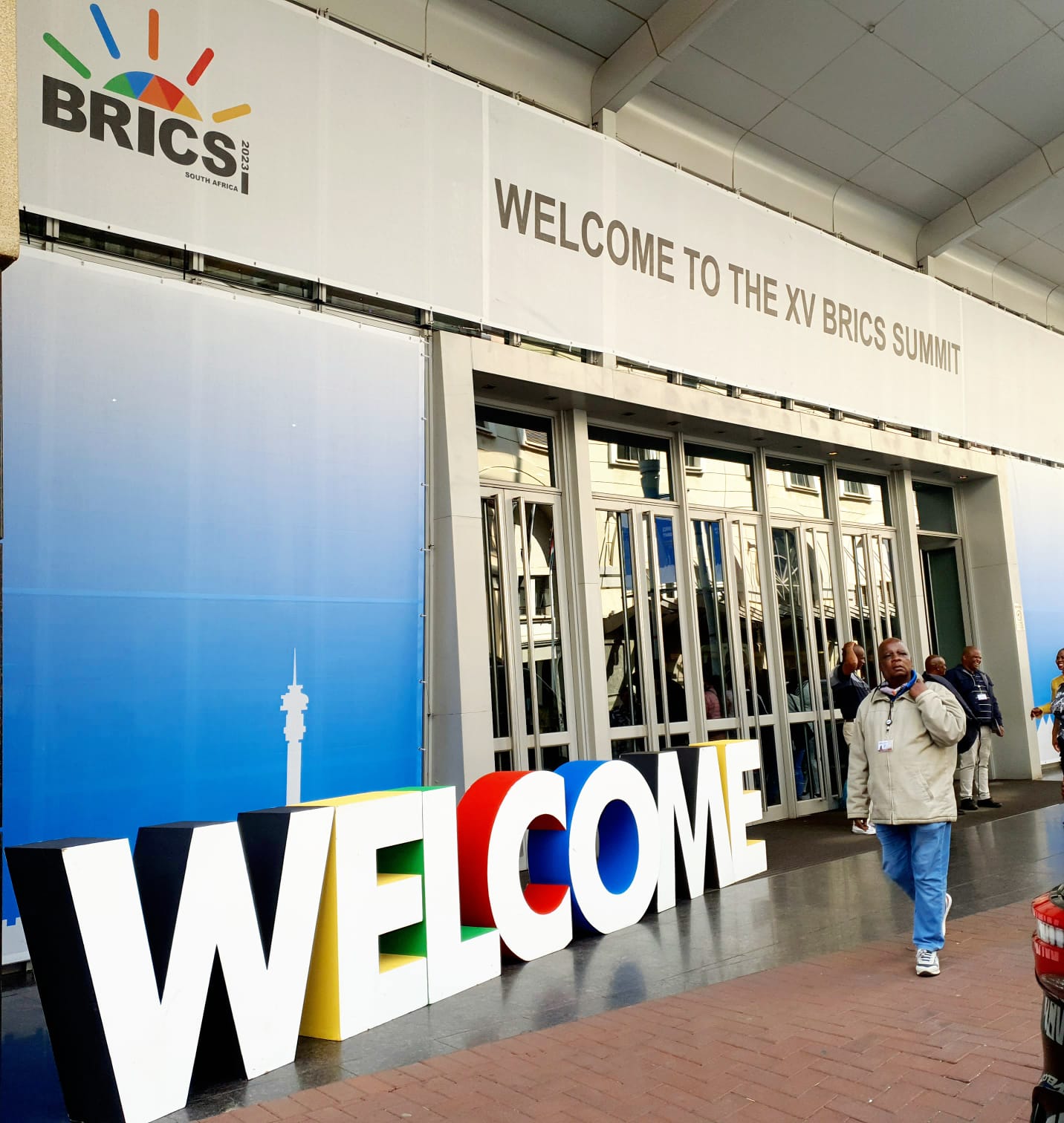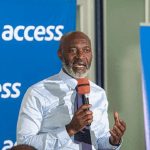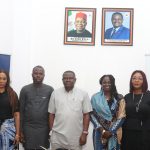General
BRICS Offers Africa Better Opportunities for Economic, Political Growth—Eyutchae
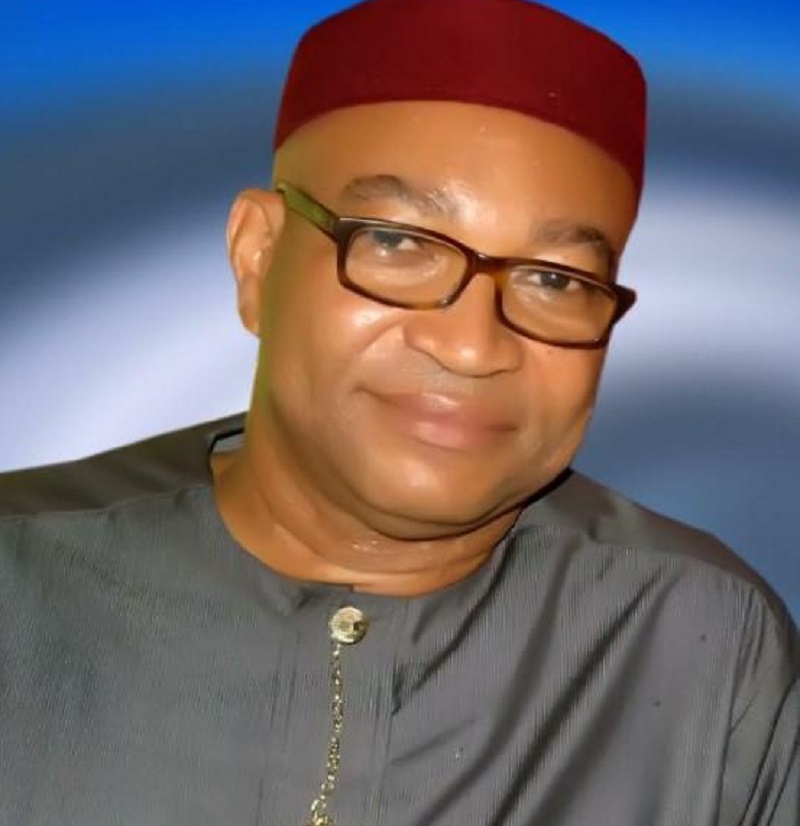
By Kestér Kenn Klomegâh
In this, Architect Eric Eyutchae, National Vice President of Alaigbo Development Foundation (ADF), an Enugu-based socio-political organization which focuses on the development of South East Nigeria, on the eve of XVI BRICS summit in Kazan, Republic of Tatarstan, discusses Africa’s political and development pitfalls, evolutionary features of BRICS+ Association, its current challenges and implications for Africa and the entire Global South. Here are the interview excerpts:
How would you argue the fact that under Russia’s presidency, BRICS+ has consolidated its position in Africa?
Architect Eric Eyutchae: BRICS is redesigning the economic, political and social landscape in Africa, as more and more African countries with increasing desire to join BRICS. From the very beginning, it is clear that the consolidation started with South Africa as one of the pioneering countries that made up BRICS.
South Africa attended the 3rd BRICS summit in 2011, with South Africa as the ‘S’ in the BRICS acronym. I think from that moment, the African direction of consolidation started with South Africa especially being one of the major powerhouses in Africa. Personally, I think that was a great move.
As you know, BRICS is a new socio-cultural and political organization that is barely 20 years in existence, so talking about the total consolidation of African nations now would be rather too early to acknowledge. However, BRICS is Africa’s largest trading partner as of today and with Ethiopia and Egypt who have joined BRICS and many more African nations expressing interest in joining BRICS, there seems to be a serious seismic shift of African nations from non-western alliances and organizations towards BRICS.
We can recall the 5th BRICS summit, held in South Africa, was solely focused on BRICS and Africa. The major theme at that time was about partnership, integration and industrialization between Africa and BRICS. In fact, that evidently showed the consolidation of African states has been in the making over the years, with trade volumes rapidly increasing over the years.
Today’s BRICS under the Chairmanship of Russia’s President Vladimir Putin has practical evidence to increase the process of enlargement and consolidation. A lot however would depend on how critical and important Africa’s partnership with BRICS is viewed from Putin’s perspective. But I am very optimistic there has been an increase in Africa’s relationship with Russia, in particular, over these past few years mainly instigated by the Russian/Ukraine war.
In a short assessment, I think the war has helped to loosen the Western tight grip on Africa and paved the way for African leaders to shop around for better developmental opportunities. And BRICS, on the whole, is offering Africa better opportunities for economic, socio-cultural and political growth.
In terms of economic cooperation and trade, China continues to play the leading role. But at the same time, Russia and India have perspectives of raising their economic standing in the region. What are your views here?
In a practical sense, China today is Africa’s biggest trading partner. As the saying goes, ‘it is not who started first that wins the race.’ So I think that for Russia and India, a lot is still in the making. First of all, we need to take a clinical look into the basic principles of BRICS and its policies towards the African continent. It holds the keys to this major seismic shift in Africa’s look towards the BRICS nations.
They have one thing in common, which is their socio-economic and political values. Today, there is a serious geopolitical struggle between Russia and Western nations. Let us be reminded that the policy of the Soviet Union, back in those days, with Africa was basically geared towards one interest, which was primarily to spread socialism and communism all around the continent. Today is quite understandable that Russia and the then Soviet Union are completely different countries.
According to President Putin during last year’s Russia –Africa summit in Saint Petersburg, Russian companies are interested in agriculture, fuel and energy sectors, nuclear power, chemical industry, mining, transport engineering and fishery. A lot of intergovernmental commissions for trade, economic, scientific and technological cooperation have been set up all around the continent to foster this new economic partnership.
Russian economic interest in Africa has been rapidly gaining ground, but yet noticeably lagging behind China and the United States. Despite the ongoing war in Ukraine, Russia’s economic interest in Africa has significantly increased. Economic opportunities come as a result of the right political trajectory that Moscow focuses on.
This is the reason why Russia would and can develop very strong economic ties, unlike most other countries that started off first with economics and later politics. The Russia-Africa Summit, for example, was a big boost for the new Russia-Africa economic cooperation.
There is also the need to take into serious consideration Russia’s freight transportation super-projects between EuroAsia and African continents. It is being facilitated through these new transport megaprojects, the North to South corridor and the Arctic sea routes. These initiatives are part of what makes Russia’s economic adventures in Africa look very bright. Moreso, Russia has quite an interesting non-aggressive.
Historical ties with Africa date back to the days of General Gannibal, the first black General in the Russian Army and who happened to be the great-grandfather of Alexander Pushkin, the great Russian poet. Russia at the time was the first to make an African noble while others were busy enslaving Africans. Also, let us remember how Russia helped to fight Apartheid in South Africa. Russia has more opportunities to leverage when it comes to Africa because of its clean records of human relations with African countries. Its economic relations with Africa is rapidly building up to a win-win situation for both Russia and Africa.
The truth is that right from the 1st century AD, Africa, India and the Middle East have already been trading partners. Most of these current relationships and partnerships can be traced to their history. As far as India is concerned, India and Africa have had a very long and shared history many centuries ago and to date. Back in the days, many Africans visited India as traders and slaves, indeed many lived and played very important roles in Indian society right from around the 4th century, so it is no surprise that we see strong economic ties being sustained over the years, What we are witnessing now is an increase in these bilateral relations.
India like most African countries was once a British colony but in recent years India has taken hold of its destiny as a great nation. India from the very beginning has been a great voice in the decolonisation of Africa and also the fight against apartheid, so it is not surprising that these political relations are materializing economically for both Africa and India. It is worthy to note that Indian independence from its colonial master was a model for African emancipation.
The historic ties go to the many years Mahatma Gandhi lived in South Africa. At the time Africa was referred to as the Indian sister continent by Nehru, the Indian first Prime Minister. India has over the years kept a very warm and cordial relationship with African countries who have been visiting New Delhi frequently in less than 10 years. That alone is a good signal that things are working out well as far as bilateral relations are concerned and points to the fact that creating good political relations is more important to growing economic relations and not the other way around.
It is not surprising that India-Africa trade relations have been growing annually by 18% since early 2000. India, as of today, is Africa’s 3rd largest trading partner after China and the EU nations. Let us note that is also the second-largest lender in Africa. Furthermore, India is a member of the African Development Bank. This goes to show how serious India-Africa economic relations are in reality. I see an increase in these partnerships, this is a result of their historic cooperation over the decades.
On the whole all resourceful trades and businesses are powered by individual relationships. Interpersonal relationships are the boosters of all other partnerships, so I see a very bright future for Russia, India and Africa’s economic relations. It is important to mention here the role of India in getting the African Union to become a member of the G20.
Do you also think lack of good governance, poor state policies and organisations are still factors hindering development in Africa? Despite the enormous resources, both natural and human, why is Africa’s living standard poor for the majority of its population?
This is a very deep and interesting question. Africa’s inability to develop rapidly judging from its enormous natural reserves is quite saddening and the reasons for this are multifaceted. The first reason is poor governance as you rightly pointed out. A nation can rightly develop in as much as its policies are at par with development. And I believe we are talking about economic development. The development itself has many facets. Africa’s inability to elect good leaders has been a major setback and has negatively impacted on entire economic development.
On the other hand, foreign influence in electing or installing African leaders for foreign interests is part of the reason for such poor leaders in Africa. Some foreign powers see Africa as an economic competitor if given the chance, and the chance here means good leadership in Africa.
The other reason here is the ignorance of Africans stemming from a lack of proper education. Unfortunately, the colonial masters might have left Africa physically to some extent but their spirit and religious views are still maintained in Africa. The education in Africa has been greatly distorted and has not been beneficial to Africa’s development. It is this ignorance that is leveraged during elections in Africa to deceive the poor masses into voting the wrong candidates into positions of power. This translates to rigging and corruption of the electoral system.
The illiterate and mostly ignorant masses are the instruments used to rig and elect bad leaders who do the bidding of their foreign masters. This is an unfortunate situation. Hardly will you see an African leader who works for the interest of their people. They are mostly after power and lavish lifestyles. There are examples all over the continent.
The poor government policies and poor organizational structure of African governments are sustained due to the ignorance of the poor masses. In Africa today, many are involved so much with local politics that is rooted in corruption and have little understanding of global geopolitics. They lack the understanding of the trickle-down effects of geopolitics.
Most Africans really don’t understand how their countries are being influenced politically, socially and economically by global politics. Ignorance makes the masses have the wrong order of values and virtues. I would believe that the right education can right most of these wrongs. The more aware and conscious a society is, the faster it can achieve great heights in all aspects of life.
Do you think with the changing geopolitical situation, BRICS+ can facilitate and support Africa?
Yes, I believe so. As I mentioned earlier, it is all in the BRICS policies towards Africa and with South Africa as a foundational member and India as a long-time ally I see great support for Africa’s growth creating a win-win situation for both BRICS and Africa.
Can you explain the challenges which currently remain in the region, especially with reference to Global South? How does Africa fit in here, as an integral part of the Global South?
Africa’s challenges today are the same challenges as yesteryears stemming from its past colonial rule. Africa’s difficulty in cutting away from its past as a colony to Western European and American powers is a major hindrance. This actually cuts both ways, in the sense that a lot matters how we as Africans view ourselves and how our past colonial masters view Africa. I would think that African consciousness is lacking in most African countries. This is where the right education plays a major role. When you have a well-educated society there is every other possibility for such a society to thrive but in Africa, the issue of brain drain persists as also a limiting factor to development whereby aside from bad leadership, the few smart and conscious individuals are given opportunities by foreign countries to work in various developed nations.
This is a situation that made African societies lose most of the experts and professionals they have to already developed nations because at home they might become useless even with all the talent and knowledge due to unemployment and poor infrastructures. With poor electricity supply for example it is impossible to have machines operate or even to read books and to function adequately as a human being in the 21st century.
Yet Africa lacks in all of this. As far as the Global South is concerned, I am not sure much would change, except that the former members of G-77 countries who were known as the Third World countries are now called the Global South. It’s just ‘a new term’ coined for developing countries. From all indications, these are countries that are striving to become economically independent.
BRICS has been advocating for serious reforms within the multilateral institutions, supporting African unified voices on the world stage. Why do African leaders hate to clean and put their own homes in order? Why do they refuse to undertake reforms at the African Union, and all the Regional Economic blocs especially ECOWAS?
With the United Nations, BRICS has been advocating for reforms in these institutions. You see, these reforms have been in anticipation for decades. After the 2008 financial crisis, BRICS was formed to seek an alternative to the Bretton Woods multilateral financial institutions.
BRICS cannot rely on institutions like the IMF, World Bank et cetera, to make the necessary reforms through multilateral institutions like G20 and the rest. However, BRICS, now taking control of the majority of global oil producers, has the potential to advance these reforms, but first and foremost, BRICS member states need to make clear their collective aims and directions of the organization as new members are absorbed into the organization.
I think that it’s not as much supporting a unified African voice on global affairs, as it is for supporting the entire voice of the Global South of which Africa is a major part. Of course, it is expected that through BRICS, Africa has a great opportunity to make its collective voice heard globally but the problem is in the collectivity of these African nations to be able to have a united voice. The various African leaders arrogantly refuse to clean up their countries basically because they don’t call the shots.
Unfortunately, Stockholm syndrome is still very real in most African countries. Hence, reforms can be made in the African Union, ECOWAS and other African regional organizations only when these African nations clean up all the rot in their various countries, and the truth is that no one is coming from outside to do it for Africans. Africans have to clean up themselves.
Indeed, it is often asked how can Africa have a collective voice when most of the individual voices are echoes of their master’s voices. Therefore, not until Africa becomes mentally free from its colonial masters, can there be any real collective African voice.
The world witnessed the sham elections in the Federal Republic of Nigeria (FRN) last year, where there was zero accountability from the electoral body mandated to carry out these elections. How can such a country undergo any meaningful reforms voluntarily? The ball actually is in Africa’s court and we must play by the rules of development or gradually go extinct.
General
Alison-Madueke Denies Wrong Doing as Prosecutors Present Evidence
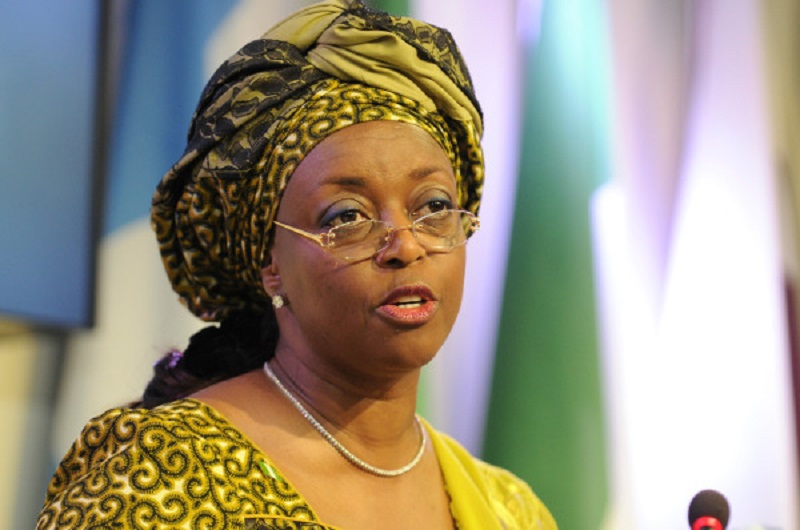
By Adedapo Adesanya
Embattled former Nigerian Minister of Petroleum, Mrs Diezani Alison-Madueke, returned to court in London on Monday, denying wrongdoing as prosecutors presented evidence for an alleged bribery.
It was recently reported that Mrs Alison-Madueke, once president of the Organisation of the Petroleum Exporting Countries (OPEC), received cash and luxury benefits in exchange for influence over oil and gas contracts when she was a minister in the cabinet of former President Goodluck Jonathan.
She has denied the claims repeatedly.
In the latest development in her trial, jurors in the British court today heard testimony from a luxury furnishings retailer and a former housekeeper, as prosecutors sought to show how high-end purchases and property use were allegedly routed through intermediaries.
The 65-year-old is accused of multiple bribery counts stemming from a years-long investigation.
The alleged offences occurred between 2011 and 2015, when she was Nigeria’s oil minister but maintained a UK address.
The UK National Crime Agency (NCA), which targets international and serious and organised crime, accused her of receiving the bribes in Britain.
Mrs Alison-Madueke is accused of accepting “financial or other advantages” from individuals linked to the Atlantic Energy and SPOG Petrochemical groups.
Both companies secured contracts with the then Nigerian National Petroleum Corporation (NNPC) or its subsidiaries, according to the prosecution.
The former minister is also said to have received £100,000 ($137,000) in cash, chauffeur-driven cars, a private jet flight to Nigeria and refurbishment work and staff costs at several London properties.
Other counts allege she received school fees for her son, products from high-end shops such as London’s Harrods department store and Louis Vuitton, and further private jet flights.
Mrs Alison-Madueke has been involved in numerous legal cases globally, including in the United States.
She has been on bail in Britain since she was arrested in October 2015.
In 2023, she was formally charged with accepting bribes, which she has denied.
General
Egbin Power Unveils Tech Empowerment Scheme for Youth Employability, Others
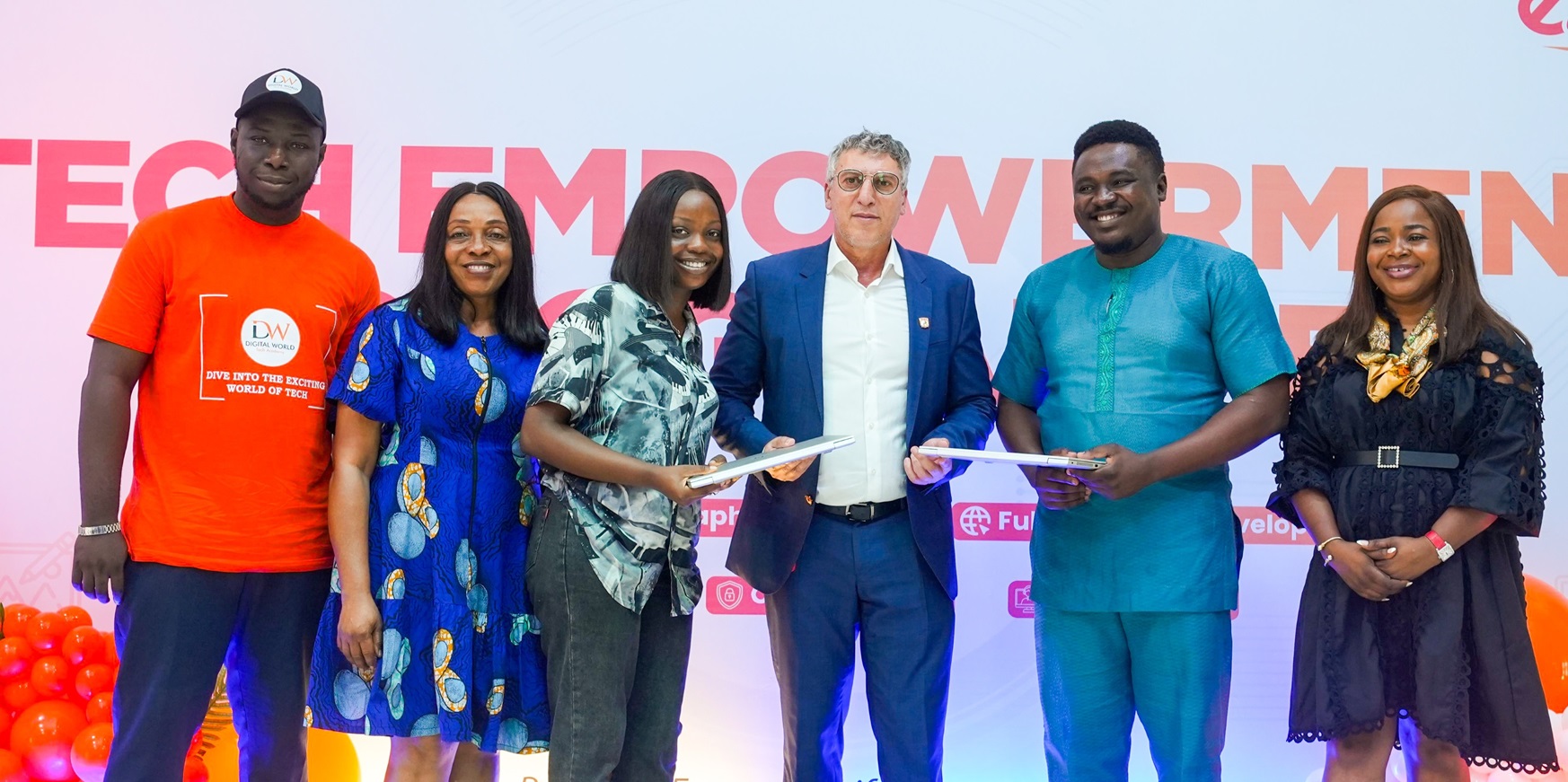
By Modupe Gbadeyanka
An initiative designed to encourage entrepreneurship, expand access to opportunities in the digital economy, and improve the employability of young people in its host communities has been launched by Egbin Power Plc.
The tech-based empowerment programme will equip young persons from Egbin, Ijede and Ipakan areas of Lagos State with digital skills.
The chief executive of the power-generating firm, Mr Mokhtar Bounour, described the initiative as part of the company’s Personal Corporate Social Responsibility (PCSR) efforts, reflecting its commitment to inclusive and sustainable development, adding that its responsibilities extend beyond electricity generation to empowering people in surrounding communities.
“In today’s digital age, technology is no longer optional but a critical driver of economic inclusion and growth,” Mr Bounour said, noting that deliberate interventions were needed to bridge digital gaps and prevent uneven development.
He explained that when communities are excluded from the digital economy, development becomes uneven and unsustainable, reinforcing the need for deliberate interventions that bridge digital gaps.
He pointed out that, “The Empowerment Programme is designed to address this gap by providing young people in Egbin, Ijede and Ipakan with access to practical and in-demand digital skills that can improve employability, foster entrepreneurship, and create new economic opportunities within their communities.”
The first cohort brings together beneficiaries from the three communities for structured training in ICT fundamentals, graphic design, full-stack web development, digital marketing, cybersecurity and data analytics. The programme combines classroom instruction with hands-on learning.
Participants were selected through a screening process that assessed curiosity, determination and willingness to learn, the company said. Beyond technical training, the programme also includes workplace skills such as ethics, problem-solving, collaboration, professionalism and digital responsibility.
Mr Bounour urged beneficiaries to act as ambassadors of the initiative and demonstrate the values of integrity, discipline and service, saying their progress would serve as evidence that strategic corporate responsibility can deliver measurable impact.
He encouraged participants to recognise their broader responsibility to their communities, urging them to learn with character, pay their knowledge forward, mentor others, and use their skills to solve real local problems. He noted that the true legacy of the programme will be the ripple effects it creates through shared success and communal growth.
The launch of the Tech Empowerment Programme underscores Egbin Power’s continued commitment to sustainable community development, trust-building, and long-term value creation.
The company reaffirmed its dedication to investing strategically in people, strengthening host communities, and contributing meaningfully to Nigeria’s digital and economic future.
General
NPA Working to Eliminate Manual Bottlenecks, Synchronise Operations Across Seaports
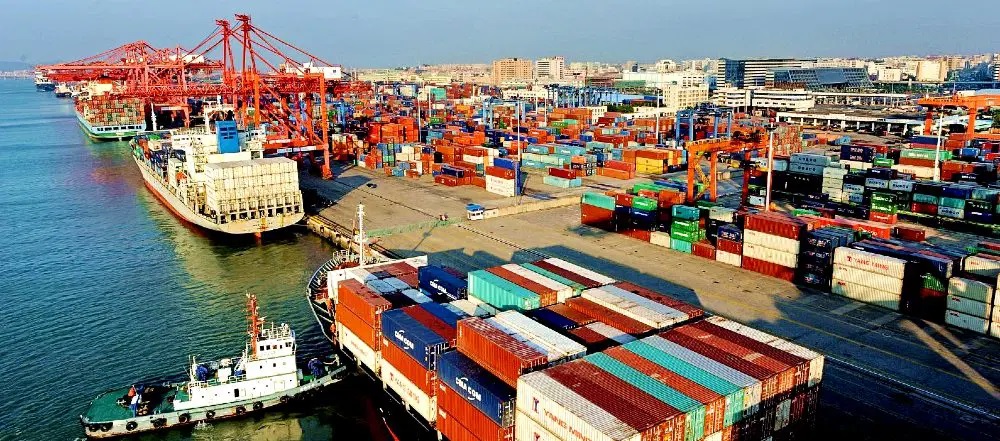
By Adedapo Adesanya
The managing director of the Nigerian Ports Authority (NPA), Mr Abubakar Dantsoho, has said the organisation is in collaboration with the International Maritime Organisation (IMO) to deploy the Port Community System (PCS) will eliminate manual bottlenecks and synchronise operations across Nigeria’s seaports.
Mr Dantsoho disclosed this at a recent three-day high-level stakeholder engagement in Lagos titled Achieving a 7-day Cargo Dwell Time, organised by the Presidential Enabling Business Environment Council (PEBEC) in collaboration with the NPA.
The engagement convened the Ports and Customs Efficiency Committee (PCEC) under the Business Environment Enhancement Programme Accelerator (BEEPA) framework, focusing on streamlining port processes to improve efficiency and ease of doing business.
According to the NPA boss, the PCS will serve as the digital backbone of the National Single Window, enabling seamless information exchange among port stakeholders and reducing delays caused by manual documentation.
On her part, the director-general of PEBEC, Mrs Zahrah Mustapha, said the session was designed to go beyond identifying challenges and focus on implementing long-overdue practical solutions.
“Nigeria loses significantly every day due to operational inefficiencies,” Mrs Mustapha said. “These are not just numbers; they represent missed opportunities, jobs not created, and delayed economic growth. This reform is about resilience and unlocking the nation’s economic potential.”
She added that the initiative brings together government regulators and private-sector stakeholders to promote transparency and accountability, with the ultimate objective of reducing cargo dwell time and improving vessel turnaround time.
Recall that the NPA recorded a 100 per cent success rate in PEBEC reforms, ranking fifth among government agencies in 2025 with an 84.2 per cent compliance rating.
Outcomes from the stakeholder engagement are expected to be implemented in the coming months. By addressing operational gaps identified during port inspections, the NPA and PEBEC aim to build a more competitive maritime environment that attracts investment and facilitates seamless trade.
-

 Feature/OPED6 years ago
Feature/OPED6 years agoDavos was Different this year
-
Travel/Tourism9 years ago
Lagos Seals Western Lodge Hotel In Ikorodu
-

 Showbiz3 years ago
Showbiz3 years agoEstranged Lover Releases Videos of Empress Njamah Bathing
-

 Banking8 years ago
Banking8 years agoSort Codes of GTBank Branches in Nigeria
-

 Economy3 years ago
Economy3 years agoSubsidy Removal: CNG at N130 Per Litre Cheaper Than Petrol—IPMAN
-

 Banking3 years ago
Banking3 years agoSort Codes of UBA Branches in Nigeria
-

 Banking3 years ago
Banking3 years agoFirst Bank Announces Planned Downtime
-

 Sports3 years ago
Sports3 years agoHighest Paid Nigerian Footballer – How Much Do Nigerian Footballers Earn


